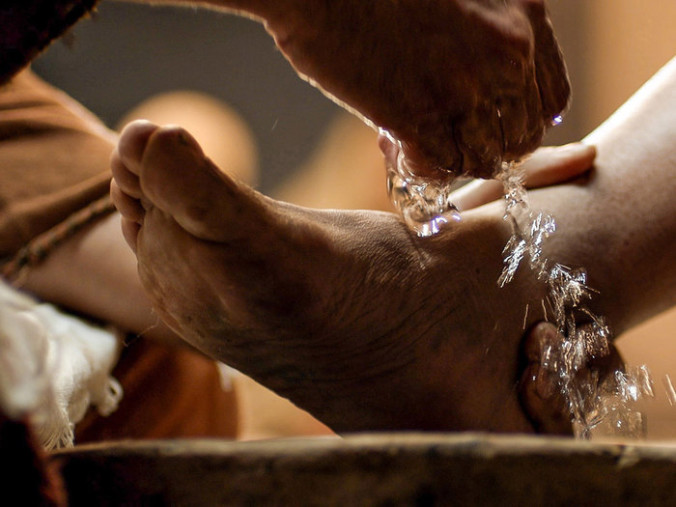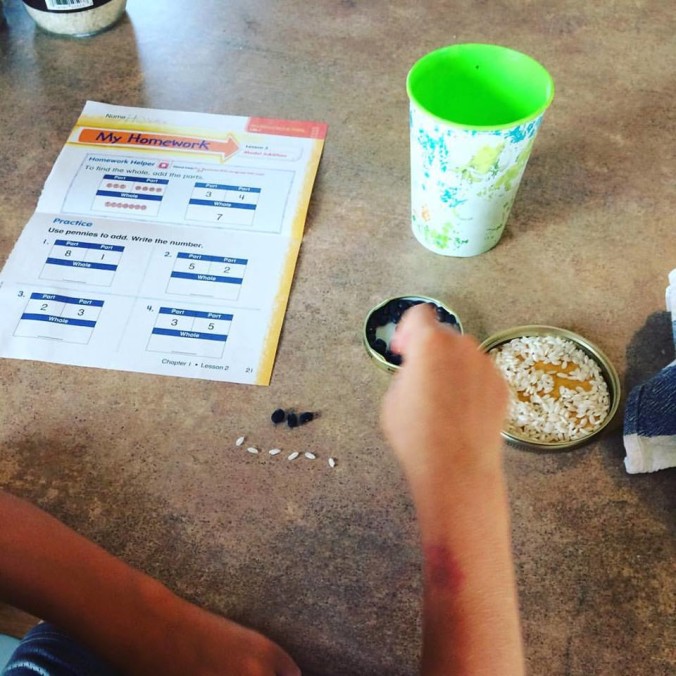I’ll confess, I have a secret love affair with the most boring books of the Bible. People make jokes about falling asleep reading Leviticus, but I find it a fascinating revelation of the course of life when it was written. Find it no surprise, then, that my current reading is Deuteronomy. (Also, I got a new First-Century Study Bible for Christmas – “Explore Scripture in its Jewish and Early Christian Context” – which probably only furthers my complete geekery, but gives me joy nonetheless.)
The book of Deuteronomy is like a “final thoughts from Moses” letter – do not fear, don’t forget to turn of the coffee pot, do not fear, remember all the stuff God did for you, do not fear… you get the drift. He starts at the finish line – they’re standing on the edge of the desert, in the foothills of the land promised to them decades ago. And he tells the story about what happened when God said, “go!”
Now, I don’t believe this story, or any Biblical account, gives someone wearing a Christian badge the right or authority to start overthrowing cities and homes. These specific people were promised a specific place. They were following a cloud of God to get there. While I love a good analogy, we must be careful to know the limits of our rhetoric. I’m guessing that God did not specifically call you to go and take the really nice house in a neighboring subdivision. I’m just sayin.
So, back to the edge of the desert. God says, go! Actually, He says things like “do not be afraid, I will go with you and I will fight for you,” and encouraging things that you should cross-stitch into your pillow. However, as we know, such sayings sound good but often do little to cut the fear. So the people of Israel pretty much say, “What the hell, God? You brought us all the way over here to die?” You see, they had sent a scouting team and they came back with a 10/12 report that the people were giants and the Israelites had no hope.
To say God was a little angry would be an understatement. He “solemnly swore” (1:34), which we all knows only happens just before an epic topple, that no one from the generation would ever see the good land. They were all heading back to the desert until a new group of Israelites – ones who would listen – grew to follow through on God’s instructions.
[box] “And the little ones that you said would be taken captive, your children who do not yet know good from bad – they will enter the land. I will give it to them and they will take possession of it. But as for you, turn around and set out toward the desert along the route to the Red Sea.” (Deut. 1:39-40)[/box]
This stopped me in my tracks. I know the argument because I argue it all the time. But what about the children?! I can’t just go off and DO all this stuff because I have little ones entrusted to me. Someone could hurt them. I have to think about their future. I want to offer them the best, and danger is not the best.
I’m a firm believer that the Bible doesn’t have random, meaningless writings in it. God answered these people with reference to the children they feared loosing because it was probably one of their grumblings against doing what God said to do. It was a scary command, one they weren’t convinced they could actually succeed, and to top it off, mama had an infant on her back and a toddler on her leg.
God gives a different version of good parenting than my natural inclinations. He says that we are to be faithful to him first. When we’re not faithful to follow God’s instructions, instead of protecting our children we are handing them our battles. In our desire to give them the good and right thing, we must, in faith, step out and do the hard thing. We must answer God’s call.
When this particular generation of Israelite parents declined God’s command, they also forfeited giving their children the opportunity to grow up in a land flowing with milk and honey. Because they were afraid to fight for it. Instead, they took these babes back to the desert to wander around. Their children buried their parents under sand and rock in the middle of nowhere. And these parents left their children without a legacy of faithfulness. Instead of telling their children, “we believed God, so we did it and now we live a blessed life,” they had to rewrite the narrative to say, “we didn’t believe God – please don’t make the same mistake. All eyes are on you, my child, to take these people into the place God promised because I didn’t.”
Many of us want to raise children that love God and others. We want good, Christian kids who will turn into faithful, loving adults. That’s fantastic. But what will get us there is probably not charts and prizes for memorization of the Bible (though, that’s a nice thing to have scripture hidden in our hearts) but rather a front-row seat to watching parents believe God and live faithfully. The studies out there are clear: the number one influencer on a young person’s faith isn’t a stellar youth group. It’s parents who value their faith and live like it.
I’m not talking about curbing language because it’s “not Christian” or making a show of reading the Bible. I’m talking about the way in which you respond to God’s call on your life. When you take that thing, that I-have-to-do-this thing and turn it into something for the glory of God, and your children have a front row seat to watching it unfold, that leaves an impression. When mama has to leave for a small group or a meeting or an event and comes home glowing in a way that only means she experienced God – that sticks far more than mama staying home and saying that it’s important to be like Jesus.
If we don’t do the work God has set in front of us, the scary thing to which we are called, that which needs God’s presence or a complete failure is sure, than we will hand off that battle to our children. That’s not keeping them safe. That’s not giving them a good life. That’s handing down the wrong legacy.
God asks us to stop hiding behind our children, using them as a basis for our fears. Instead, we are to step into a faithful life that will give them an example of what it means to follow God.
**Obvious but I’ll state it anyway: Don’t do stuff that puts your kids in direct line of danger and just “hope for the best”, please. This is about how we use parenting as a shield for our fears. God isn’t into child sacrifice – just read the book.



